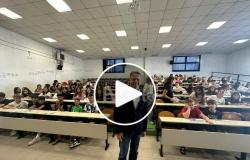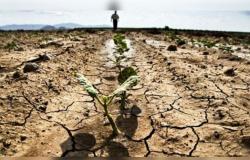Insufficient number of classrooms to accommodate all activated classes and/or insufficient furnishings in relation to the enrolled students; lack of respect of the timetables of the disciplines of the study areas e in some cases total elimination of some disciplines; lack of laboratories, of the agricultural company in the technical agricultural path, of the kitchens and foodstuffs in the food and wine paths; absence of the civic education curriculum; operation of multiple collateral fifth classes with a high rate of students residing outside the region (up to 90%) of whom the domicile near the school is not declared for the purposes of regular school attendance; teaching staff without qualifications and even the entrance qualification for teaching the disciplines; discrepancies in the hours of service indicated in individual employment contracts with respect to the work performance resulting from the class assignment documents; serious failure to comply with the provisions in force regarding suitability exams and supplementary exams; gaps and inconsistencies in the keeping of paper and electronic records which undermine the veracity of what is certified.
Here are the scattered reasons that led the inspectors of the Ministry of Education and Merit to ask to start the procedure for the revocation of parity for 47 private schools out of 70 checked: it means that if the procedure is completed, they will no longer be able to give diplomas with legal value.
I am secondary schools located in Campania (40), Lazio (15) and Sicily (15)the regions most at risk of diploma mills, at least according to data from recent years which revealed a peak in enrollments close to the final exam.
In some cases the situations detected by the 71 inspection panels were more serious than expected: e so reports were sent to the Financial Police, also thanks to the Memorandum of Understanding signed by the Ministry of Education and Merit with the General Command, and to the Public Prosecutor’s Office for the relevant investigation profiles.
«No tolerance towards those who do not respect the law»
«Today we announce with satisfaction the conclusion of the extraordinary surveillance plan against the diploma mill phenomenon. This government has no tolerance towards those who do not respect the law. We reiterate our constant commitment to guarantee quality standards for all students, whether they attend state or private schools”, comments the Minister of Education and Merit Giuseppe Valditara. «For the first time in Italy, concrete actions are being implemented to protect legality in schoolswhich will be accompanied from the next school year by the legislative measures that we strongly support and approved by the Council of Ministers, measures designed to combat abuses and distortions in the bud and guarantee quality education in all institutions of the public system, of which the equality represent an important link”, concludes Valditara.
High school graduates moving south
The operations had already started last year, but Tutto Scuola’s complaint last week pushed the ministry to accelerate the dissemination of the results. «In private institutions, within which suspicious structures are camouflaged – wrote Tuttoscuola – theThe number of candidates last year increased by 2,698 units, in contrast with the national demographic decline, going from 53,472 in 2022 to 56,170 in 2023. Therefore with an increase of 5%.. A trend that will also be confirmed in the maturity of 2024: this year too, in fact, at least 10 thousand high school graduates will move from all over Italy, mainly towards the South».
Every year, therefore, thousands of candidates, Tutto Scuola underlined, «to obtain the coveted piece of paper, pack their bags and change region and then return home after a few days with their high school diploma in their pocket. Probably an entirely Italian phenomenon.”
There is another piece of data that has been “attended”: from Tuttoscuola data it emerges that Last year, between the fourth and fifth year of high school, the number of students enrolled in private schools increased by over 30 thousand units, almost entirely in the three regions of Campania, Lazio and Sicily.
But the record belongs to Campania with a growth of almost 22 thousand members. A number that is too high and cannot be balanced by state schools in Campania where, in the same period, there was a decrease in enrollments of only 2,454 units. So most of the new students enrolled in fifth grade in the equal Campania schools came from other regions. And so the graduates of private institutions in Campania last year represented 30% of the total, therefore including both state and private schools, against a national average of less than 7%. «Impressive numbers that cannot fail to arouse suspicion», wrote Tutto Scuola.
A bill against diploma mills
The inspection plan is just one piece in the crackdown on diploma factories: in the Council of Ministers, as part of the Simplifications bill, a bill was presented which provides measures aimed at combating irregularities even more effectively, such as the stop at 4 years in one (at most two can be merged), the the obligation of the electronic register to monitor student attendance throughout the year, the limits to the establishment of collateral classes, the rules for taking exams for multiple school years at the same time. The bill is about to be presented to the Chambers and will be approved, according to the provisions of the PNRR, by the end of this year.
To understand how much influence a rule such as the one that regulates the organization of, for example, can have fields of study, you need to know that there is a big difference between state institutions and private institutions.
For the former, groups of students are formed by field of study, grouped within the same class within the minimum numerical limit required (for example, at least 27 students in the first classes). In state terminal classes, theoretically only one collateral class can be constituted, regardless of the number of addresses present in the class. It is, therefore, the number of students that gives rise to the formation of the class in state institutions.
In private institutions, however, each field of study has a life of its own, regardless of the number of students enrolled. It can happen (indeed, it often happens) that different study areas are activated in the fourth year (Tuttoscuola has detected some private institutes with 6, 7 and up to 8 different study areas, with a number of fourth year students that are often on the fingers of one hand). Each course of study activated in the fourth year of private institutions, with the current rules, is entitled to activate a collateral terminal class. It doesn’t matter if overall the total number of students would not be enough to constitute a class: it is the number of fields of study that counts, not the number of students. And so the “suspicious” institutions fill up with enrollments in the fifth year.





